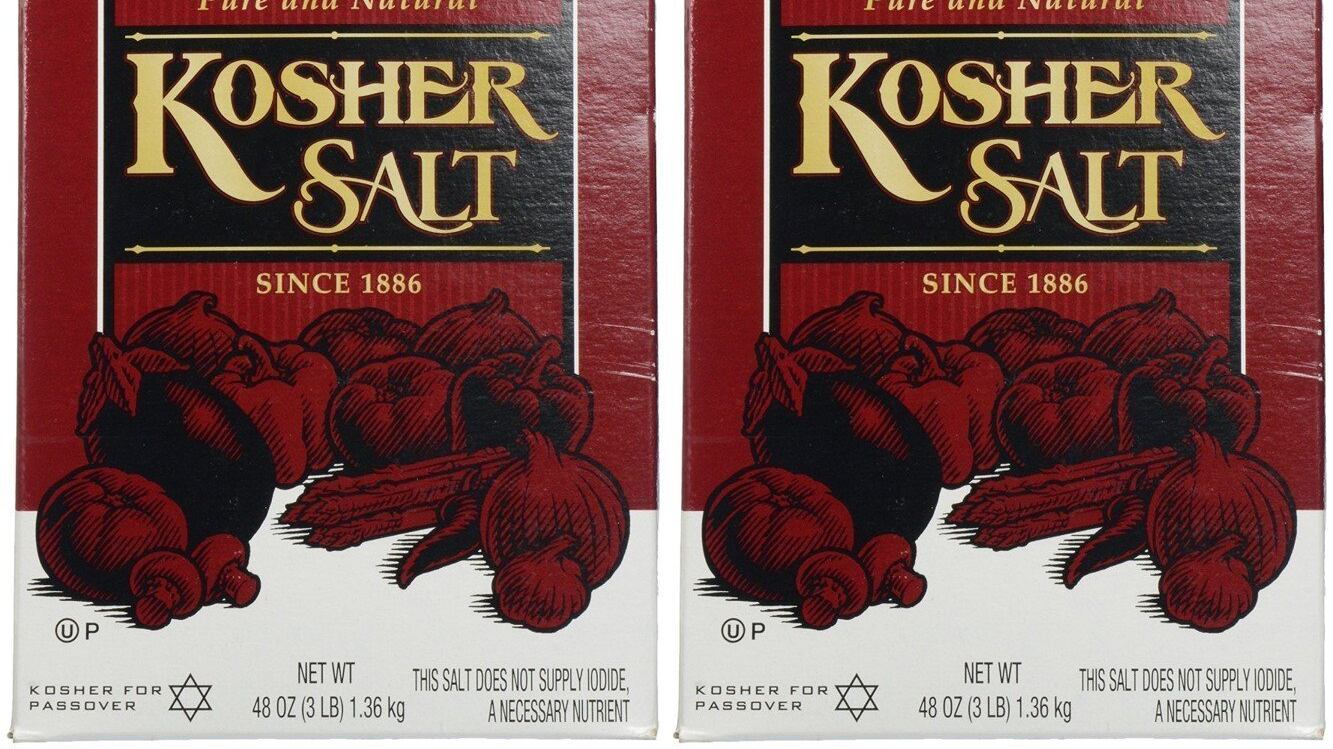A few years ago I was living with a friend who happened to be a pretty accomplished home cook. One of the most noticable parts of his kitchen setup was a huge, three-pound box of Diamond Crystal Kosher Salt. To season his food, he'd upturn the box, messily pour some of the salt into the palm of his hand and scatter it over his brussells sprouts as they sauteed, before flicking the leftovers off of his hand into the sink.
This is the correct way to salt your food and the correct salt you should use in home cooking.

If you're an avid home cook, you probably already know that there are approximately 5000 different kinds of salt, and you probably already use kosher salt because it's cheap and the best. But, prompted by Drew Magary's Funbag column this week over on Deadspin, I thought i'd wise the Cool Stuff readerbase up on the secret to making your food taste good.
Basically, there are three kinds of salt you need to know about: iodized, kosher and finishing. Iodized, or table salt, is what you're probably using to season your food, both in cooking, and on the table. It's grains are fine and circular, giving it a smooth feeling between your fingers. It contains iodine, which is one of those weird chemicals you need some trace amount of in your diet or else your body develops dozens of tumors or something.
Kosher salt is uniodized, and its grains are larger, coarser and flatter than iodized salt. It dissolves quickly.
Finishing salts are those fancy salts that you'll find on tables at nice restaurants. They have big, pretty, delicate crystals and have a nice crunch to them, making them perfect for setting off a nice dish. Fancy variations often come in striking colors, are flavored, or are imported from France or the Oregon coast. You can read a little more about them here.
Kosher salt is, in my unscientific estimation, close to universally used in professional kitchens, and it is done so because it is the best kind of salt. There are a couple of reasons why. First, and most importantly, is that it tastes the best. Iodine is noticably bitter, and kosher salt is not: it tastes like salt, because there is one ingredient in it. If you're like me and you're used to kosher salt, salting your food with table salt makes it taste noticeably weird.
Second, it is easier to control than table salt. Individual grains of kosher salt are much larger and less fine than those of table salt, meaning they dissolve slower and are easier to control in your hand.
Third, it's cheaper than finishing salt. You can get 6 pounds of kosher salt on Amazon for $12, which is enough to last for anywhere between eight months and two years depending on how much you cook.
To finish, I'll leave you with some salt tips:
- Season your food by pouring salt into the palm of your hand and sprinking it over your dish while stirring. This ensures it dissolves evenly and quickly.
- Unless you know what you’re doing in the kitchen, you probably aren’t salting your food enough. Taste frequently, and keep adding salt in small sprinkles until the food tastes good. I usually use well over a tablespoon of Diamond Kosher for a large pot of food.
- Find one brand and stick to it. Different brands of salts have different densities, meaning that the same volume weights contain different amounts of salt, which means the same amounts don’t convert between brands. I use Diamond Kosher, which whips ass.
- If you want to read a little more on the topic, Bon Appetit has a good primer on why kosher is best.
(Cool Stuff is a new feature at Willamette Week where we feature product reviews, roundups, sales and other commerce and shopping-oriented content. All Cool Stuff reviews are editorially independent, meaning we provide honest reviews and aren't paid by the brands we write about. If you do choose to purchase something after following one of our links, Willamette Week may receive a commission, which helps fund our journalism.)

